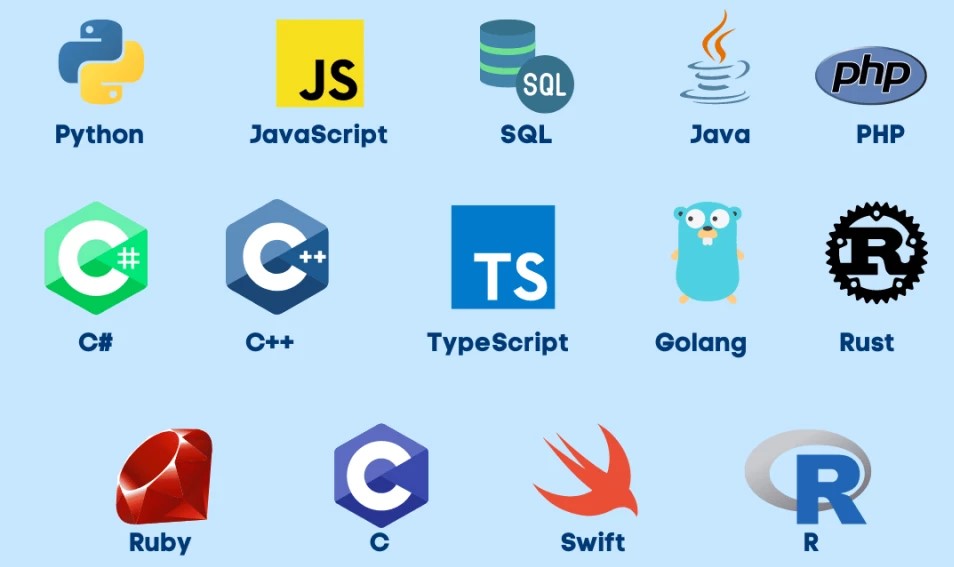Exploring the Most Famous Programming Languages of Recent Times
By: Ali H.

The world of programming is constantly evolving, and new programming languages emerge regularly, each designed to address specific needs and challenges. In this article, we will take a closer look at some of the most famous recent programming languages that have gained popularity among developers. From general-purpose languages to specialized domains, these languages have made their mark in the tech industry and continue to shape the way we build software.
1. Python:
Python has witnessed an exponential rise in popularity over the past decade. Known for its simplicity and readability, Python is widely used in various domains, including web development, data analysis, machine learning, and artificial intelligence. Its extensive standard library and vast ecosystem of third-party packages make it a versatile language. With its clear syntax and emphasis on code readability, Python has become a favorite among beginners and experienced developers alike.
2. JavaScript:
JavaScript is the language of the web. As a client-side scripting language, it allows developers to bring interactivity and dynamic behavior to websites. JavaScript has expanded beyond the browser and is now widely used in server-side development (Node.js) and mobile app development frameworks (React Native, Ionic). With continuous advancements, JavaScript has become a powerful and essential language for building modern web applications.
3. Go:
Developed by Google, Go (often referred to as Golang) has gained significant attention in recent years. Go is designed for efficiency, simplicity, and concurrency. It offers a strong type system, garbage collection, and built-in support for concurrent programming. Go's performance and scalability make it an ideal choice for building networked and distributed systems. With its growing community and strong support from major tech companies, Go is poised to make a significant impact in the programming landscape.
4. Rust:
Rust is a systems programming language that focuses on performance, memory safety, and concurrency. It guarantees memory safety without sacrificing low-level control, making it suitable for tasks that require both performance and safety. Rust's unique ownership model and strict compile-time checks ensure memory safety and prevent common programming errors like null pointer dereferences and data races. Its popularity has been fueled by its ability to build fast and reliable systems software, such as web browsers, operating systems, and network services.
5. Kotlin:
Kotlin is a modern programming language that runs on the Java Virtual Machine (JVM) and can be used alongside Java. Developed by JetBrains, Kotlin offers concise syntax, null safety, and enhanced tooling support. It has gained traction in Android app development, as Google officially announced Kotlin as a first-class language for Android development. Kotlin's interoperability with Java, along with its modern features, has made it a preferred choice for building Android apps.
6. Swift:
Swift is Apple's programming language for iOS, macOS, watchOS, and tvOS app development. It is designed to be safe, fast, and expressive. Swift combines modern language features with performance optimizations, making it easier and more efficient to develop robust applications for Apple platforms. With its growing popularity, Swift has garnered a strong developer community and continues to evolve with new features and improvements.
These programming languages have made a significant impact in recent years and have become go-to choices for developers in various domains. Python's versatility, JavaScript's ubiquity, Go's efficiency, Rust's safety, Kotlin's Android development support, and Swift's Apple ecosystem integration showcase the diversity and innovation in the programming language landscape. As technology continues to advance, staying up to date with these languages and exploring their capabilities will empower developers to create cutting-edge solutions in an ever-evolving digital world.
Related Posts
